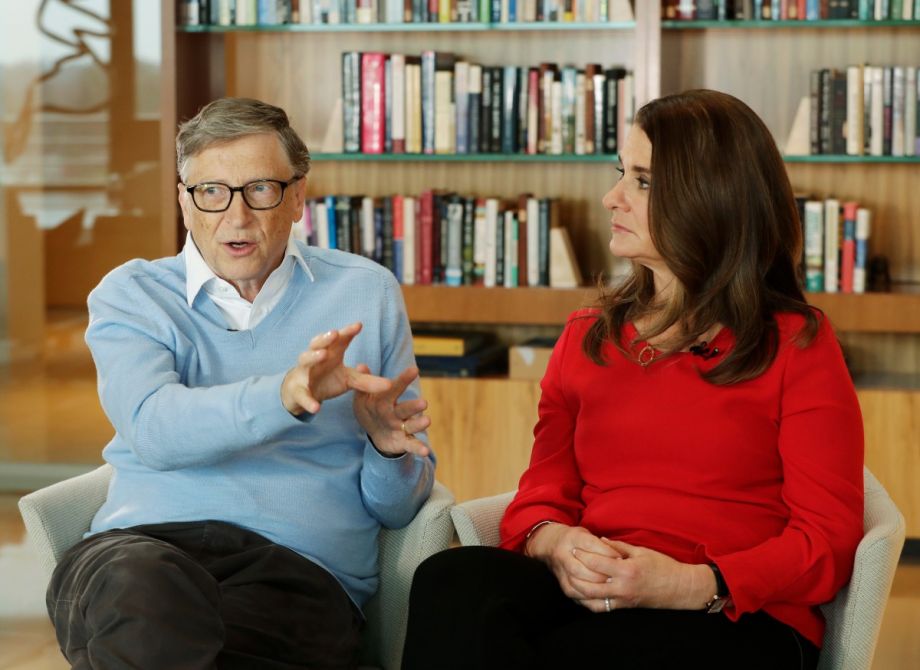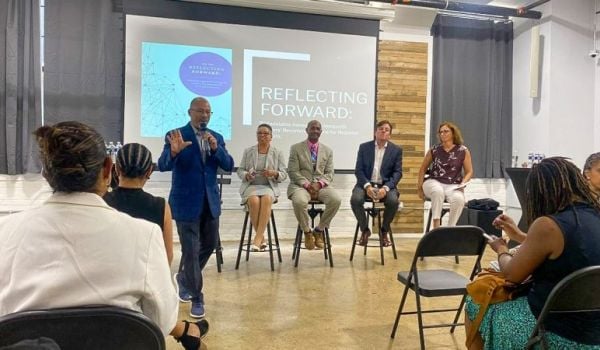The Bill & Melinda Gates Foundation will spend $158 million on fighting poverty in the U.S., the Seattle Times reported. The amount is modest by Gates Foundation standards, which spends more than $4 billion a year fighting malaria and other diseases in the world’s poorest countries, but the projected funding makes it one of the biggest players in the U.S. antipoverty space, the Times said.
Sue Desmond-Hellmann, CEO of the Gates Foundation, announced the funding at a conference in Washington, D.C.
The foundation’s antipoverty measures will be different than that of its previous work, Desmond-Hellmann explained in a blog post on LinkedIn. “Our work will not be about driving a specific outcome like the eradication of a particular disease,” she wrote. “Rather, we will focus on supporting the army of people already working to eliminate barriers to economic opportunity. They have experience and great ideas, and we have identified a few ways we think we can help them be even more effective.”
Desmond-Hellmann enumerated five areas in which the foundation believes it can help — the first, by funding research that closes “data gaps.” “For example, we have an image of what a good neighborhood is, but we don’t actually know how all of the characteristics of neighborhoods contribute to upward economic mobility,” she wrote. “Research we’ve already funded has produced powerful findings that challenge our assumptions. It turns out that even when children grow up in the same areas with parents earning very similar incomes, African-American boys still fare worse in later life than white boys in almost every single neighborhood in the U.S.”
Second and third, the foundation will create nationwide networks and hubs for leaders and policymakers to share data and work together.
Fourth, Desmond-Hellmann says the foundation wishes to “help…workers in low-income jobs get a chance to move up the economic ladder.” And finally, the foundation will work to “chang[e] the stories we tell about why people are poor.”
The antipoverty measures are not the Gates Foundation’s first domestic work; it also spent billions of dollars trying to reform public education, including developing and promoting the wildly controversial Common Core State Standards. The foundation said it’s applying lessons learned from its education work to this new program. The Seattle Times writes:
While the foundation tried to improve education by focusing on issues like class size, testing and curriculum, they kept bumping into barriers from outside the classroom — primarily persistent poverty, she said.
For example, in King and Pierce counties, where the foundation works to reduce homelessness, they found many students were chronically absent or forced to switch schools because their families didn’t have stable housing.
Now, the foundation funds partnerships between housing authorities and school districts to focus on what’s best for the children and keep their education on track, said Ryan Rippel, who advises the foundation on poverty programs.
Specific programs have yet to be identified for the antipoverty work, but the foundation’s grantmaking will take lessons from the U.S. Partnership on Mobility from Poverty, which the foundation funded with $5 million starting two years ago.
Still, at least one person expressed doubt that the initiative would make a difference. David Callahan, founder and editor of the magazine Inside Philanthropy, pointed out to the Seattle Times that philanthropists are seldom willing to tackle the political and structural forces behind inequality. “Raising pay for these low-wage and low-skill jobs requires policy advocacy and changing labor policies and making it easier for unions to form — and most funders don’t want anything to do with that sort of stuff,” Callahan told the Times.
However, the Partnership on Mobility has already shown itself willing to take on controversial topics — in its discussion about improving access to “opportunity neighborhoods,” “confront racism” is an explicit bullet point.
“There are no simple answers to overcoming poverty,” Desmond-Hellmann wrote. “The problem can feel so entrenched that some wonder if it is solvable. But from Mayfair to Dayton to the Deep South, we’ve met people who are using their ingenuity and talent to accomplish incredible things against incredible odds. And we are excited to be joining them in this movement.”

Rachel Kaufman is Next City's senior editor, responsible for our daily journalism. She was a longtime Next City freelance writer and editor before coming on staff full-time. She has covered transportation, sustainability, science and tech. Her writing has appeared in Inc., National Geographic News, Scientific American and other outlets.
Follow Rachel .(JavaScript must be enabled to view this email address)













